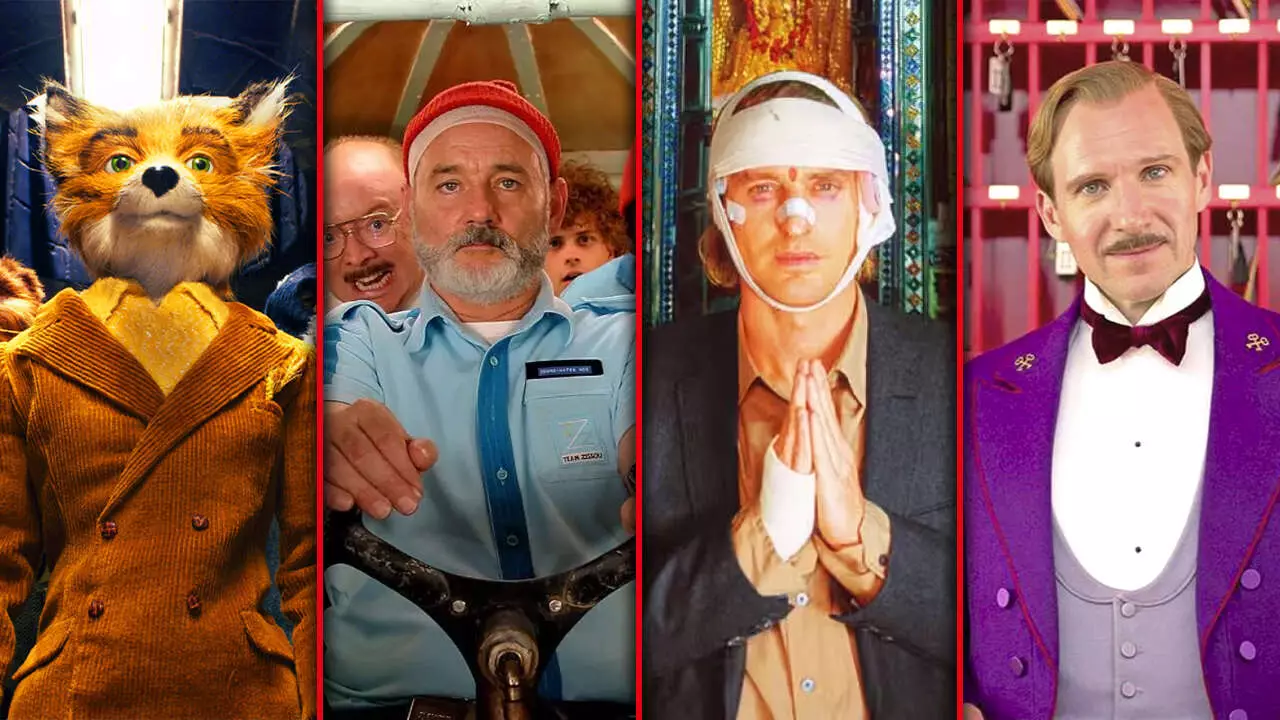Wes Anderson stands out as an exemplary auteur in contemporary cinema, having crafted a distinctive artistic identity that resonates with audiences globally. With nearly three decades of directorial prowess, Anderson has channeled his unique vision into thirteen remarkable feature films since his debut in 1996. His compositions are characterized by symmetrical framing, vibrant color palettes, and quirky storytelling that transports viewers into meticulously crafted worlds where whimsy meets depth. Now, his cinematic legacy is beautifully encapsulated in a lavish 4K Blu-ray box set from the prestigious Criterion Collection, set to release on September 30.
The Definitive Collection: A Cinematic Treasure Trove
Anticipation is building around the Criterion Collection’s release of “The Wes Anderson Archive,” a curated collection featuring ten of Anderson’s masterpieces, thoughtfully remastered in stunning 4K quality. This box set boasts classics such as *Rushmore*, *The Royal Tenenbaums*, and *The Grand Budapest Hotel*, representing the evolution of Anderson’s artistic journey. With a retail price of $500, it may seem indulgent, but savvy collectors can pre-order it for a discounted price of $368—an investment for those who appreciate the intricacies of film art.
Alongside the films, the bundle includes over 25 hours of special features, promising a treasure trove of insights into Anderson’s creative process. This extensive content features audio commentary, interviews, deleted scenes, and promotional materials, providing fans with a comprehensive understanding of the meticulous craftsmanship that goes into each project. The films are presented with the utmost fidelity, overseen by Anderson himself, ensuring that every visual and auditory element resonates with the intended artistic intent.
Visual and Auditory Delight
Wes Anderson’s films are not merely watched; they are experienced. The director’s intentional choices, from the use of color to sound design, encapsulate a nostalgic reverence for cinema’s past. His works often feature meticulously arranged mise-en-scène that evokes the aesthetics of an era gone by, enhancing the storytelling while enveloping viewers in a visually rich environment. The box set’s inclusion of illustrated books provides a deeper dive into this stylized universe, serving as a bridge between childhood inspiration and artistic maturity.
Anderson’s choice of music, heavily influenced by the 1960s and 1970s, further deepens the retro feel of his films, engaging audiences on an emotional level. Notably, his mastery of stop-motion animation shines through in *Fantastic Mr. Fox* and *Isle of Dogs*, showcasing his ability to infuse complex themes into playful vehicles of storytelling. These animations are a testament to Anderson’s versatility in handling diverse formats while remaining true to his unique creative spark.
Beyond the Box Set: A Legacy in Arthouse Cinema
While the Criterion Collection’s offering of Wes Anderson’s films is undoubtedly a standout, it fits within a broader context of cultivating a greater appreciation for arthouse cinema. Collections like CC40: The Criterion Collection, featuring a mix of classic and contemporary masterpieces, reaffirm the importance of preserving diverse cinematic voices. The sheer range of films in CC40—encompassing genre-defining classics alongside contemporary gems—mirrors the eclectic nature of film artistry itself.
Although the CC40 box set carries an $800 retail price, it is currently available for $372.66. This is a significant reduction for enthusiasts dedicated to expanding their film libraries with critically acclaimed titles, manifesting the rich tapestry of storytelling that cinema encapsulates.
In a world where rapid consumption often trumps depth in art, the Criterion Collection’s release of Wes Anderson’s films offers not just a collection, but a revival of passionate engagement. It’s an invitation to step into Anderson’s intricately crafted worlds and appreciate the subtleties that define his work. Investing in such collections nurtures a deeper understanding of film as an art form and recognizes the importance of unique narratives that challenge conventional storytelling.


Leave a Reply